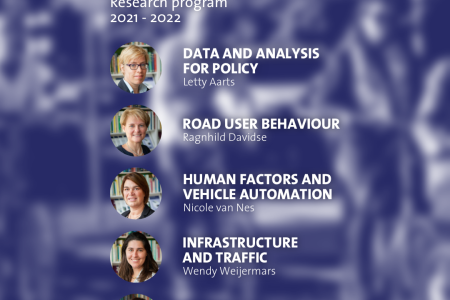How can we ensure safe interaction between drivers and their self-driving car? And how do other road users react to these vehicles? How does nitrous oxide affect driving behaviour? With the 2021 research program, SWOV aims to answer these questions, among many others.
The relationship between spatial planning and road safety in Dutch cities will also be studied, e.g. the safety level in the newer neighbourhoods compared to the older city neighbourhoods will be examined. In 2021 SWOV’s team for in-depth research of crashes will study motorcycle crashes, bicycle-car crashes on 30 km/h-roads and wrong-way driving crashes.
SWOV will continue to monitor and analyse the developments in road safety in the Netherlands. When monitoring road safety, specific attention will go to the developments in past and current year, amongst which the corona crisis.
For its research, SWOV will use/make use of the driving simulator, data from vehicles' in-car cameras and sensors, advanced data analysis techniques and in-depth research techniques.
Read more about the 2021 Research Program subsidized by the Ministry of Infrastructure and Water Management.
In addition to the abovementioned research, SWOV conducts research on behalf of or in collaboration with authorities from local, regional and semi-governmental sectors, consultancy agencies, commercial and social organizations. SWOV also participates regularly in international research projects.

